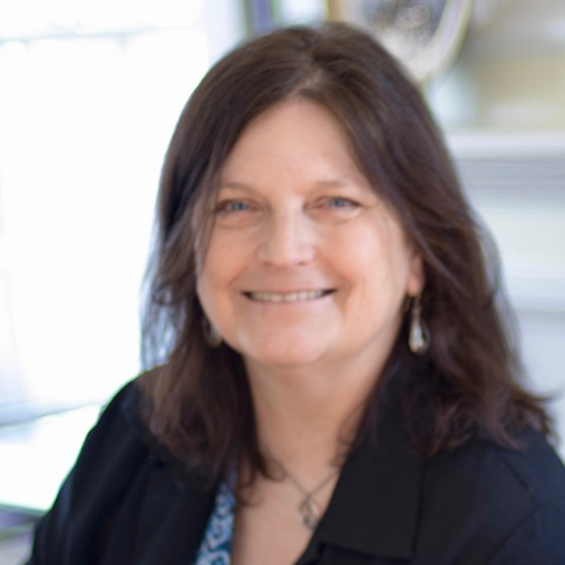Lydia Savage PhD
- Professor of Geography
Education
- PhD, Geography, Clark University
- MA, Geography, Clark University
- BA, Geography, University of California, Berkeley
Current Courses
- GYA 202D: Research Methods
- GEO 101J: Human Geography
- GEO 203J: Urban and Regional Development
- GEO 209: Introduction to Land Use Planning
- GEO 302: Gender, Work, and Space
- GEO 402: Urban Geography
- COR 160: Power, Profit, and Pleasure
Research Interests
My research interests are in economic, urban, and social geography. My long-term research has focused primarily on economic change and both its impact on workers and the response of workers, particularly women employed in the growing service sector. This research examines the ways in which labor unions use geographically informed organizing strategies in light of contemporary changes in employment. Moreover, labor unions as institutions must fundamentally change their structure, culture, and leadership in order to represent workers in the new economy. I maintain that workers can use labor unions to improve their position in the labor market, and in the process, labor unions are strengthened and are better able to respond to economic change and workplaces are improved. This research has moved into examining the economic impact of public higher education restructuring on states. I am also interested in the changing landscape of Portland, Maine and the role of planning and policy in addressing workforce development, economic justice and housing issues.
A native of San Francisco, Lydia began her undergraduate studies in 1982. After taking time off to travel and live in many places including Japan and teaching ESL to children of migrant workers in the Central Valley, she eventually earned her B.A. in geography from the University of California at Berkeley in 1990. She moved to the east coast in 1991 to begin her graduate studies in geography at Clark University in Worcester, MA where she earned her M.A. in 1993 and her Ph.D. in 1996.
Despite her family’s best efforts to lure her back to the west coast, she began teaching at USM in 1996 and has settled into Maine happily. Her teaching and research combine her interests in economic change, feminism, urban and regional development, and her family’s long history in the U.S. labor movement. Additionally, she is a member of the Women and Gender Studies program at USM and Vice-President of the USM Affiliated Faculty of University of Maine union chapter, serves on the statewide Negotiating Team and is a founding Advisory Board member of The International Academy@USM. She has received the USM Faculty Senate Award for Excellence in Teaching and the Kathleen McPherson Outstanding Feminist Faculty award for Feminist Scholarship, Teaching and Service.
Expertise
- Urban and Regional Development
- US Labor Movement
- Gender and Work
- Gender, race and ethnicity in the city
- Areas of scholarship:
- Urban and Regional Development
- Labor issues
- Gender and Work
- Gender, race and ethnicity in the city
Selected Publications
-
Aguiar, Luis, Maite Tapia and Lydia Savage (co-editors) (forthcoming) Global Challenges to Labour Unions: The SEIU in Focus. Contract with University of Illinois Press.
-
Savage, Lydia and Steven Tufts (2009). Co-editors of themed issue: “Labouring Geography: Negotiating Scales, Strategies, and Future Directions” Geoforum 40(6): 941-1002.
-
Steven Tufts and Lydia Savage (2009) “Labouring Geography: Negotiating Scales, Strategies, and Future Directions” Geoforum 40(6):945-948.
-
Krueger, Rob and Lydia Savage (2007) “Boston’s Urban Politics: Mediating Neo-liberalism and Redefining Sustainability.” Special Issue “City-regions, political participation and geographies of social reproduction” edited by Andrew Joan and Kevin Ward. International Journal of Urban and Regional Research 31(1): 215–23
-
Savage, Lydia (2006) Justice for Janitors: Scales of Organizing and Representing Workers. Invited article for a special issue “The Dirty Work of Neoliberalism: Cleaners in the Global Economy” co-edited by Luis LM Aguiar and Andrew Herod. Antipode 38(3): 648-667.
-
Savage, Lydia (2004) Public Sector Unions Shaping Hospital Privatization: The Creation of Boston Medical Center. Environment and Planning A 36(3): 547-568.
-
Lydia Savage and Jane Wills. 2004. Guest Co-editors. "Geographical Challenges to Organized Labor." A special theme issue of Geoforum titled "Geographical Challenges to Organized Labor," a collection of 5 peer-reviewed articles and introductory essay. 35 (1)
-
Lydia Savage and Mark Lapping. 2003. Sprawl and Its Discontents: The Rural Dimension. In Matthew J. Lindstrom and Hugh Bartling (eds) Suburban Sprawl: Culture, Ecology, and Politics. Lanham, MD: Rowman & Littlefield Publishing Group.
Education
- PhD, Geography, Clark University
- MA, Geography, Clark University
- BA, Geography, University of California, Berkeley
Current Courses
- GYA 202D: Research Methods
- GEO 101J: Human Geography
- GEO 203J: Urban and Regional Development
- GEO 209: Introduction to Land Use Planning
- GEO 302: Gender, Work, and Space
- GEO 402: Urban Geography
- COR 160: Power, Profit, and Pleasure
Research Interests
My research interests are in economic, urban, and social geography. My long-term research has focused primarily on economic change and both its impact on workers and the response of workers, particularly women employed in the growing service sector. This research examines the ways in which labor unions use geographically informed organizing strategies in light of contemporary changes in employment. Moreover, labor unions as institutions must fundamentally change their structure, culture, and leadership in order to represent workers in the new economy. I maintain that workers can use labor unions to improve their position in the labor market, and in the process, labor unions are strengthened and are better able to respond to economic change and workplaces are improved. This research has moved into examining the economic impact of public higher education restructuring on states. I am also interested in the changing landscape of Portland, Maine and the role of planning and policy in addressing workforce development, economic justice and housing issues.


